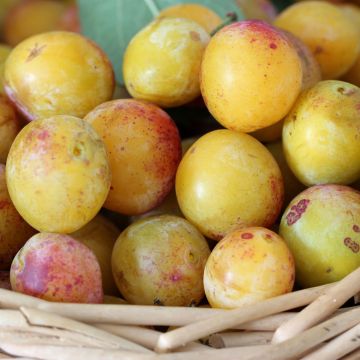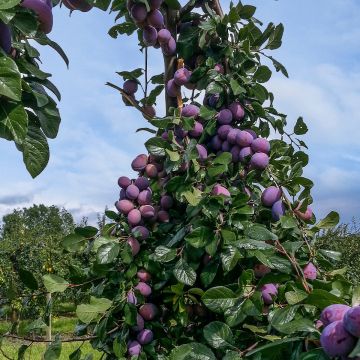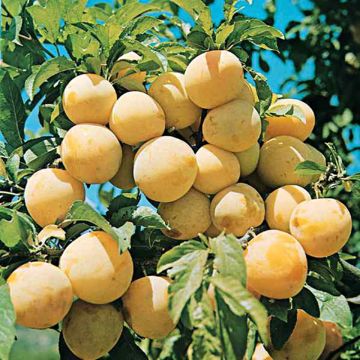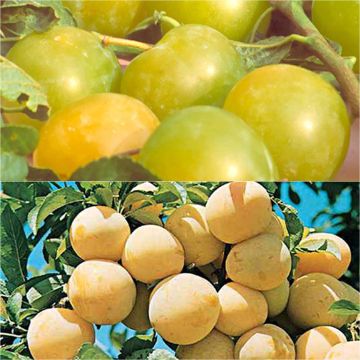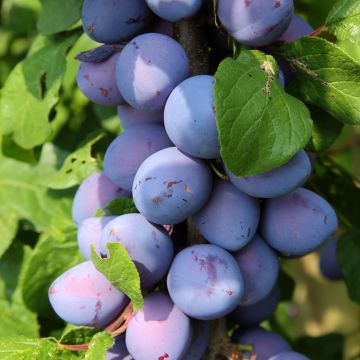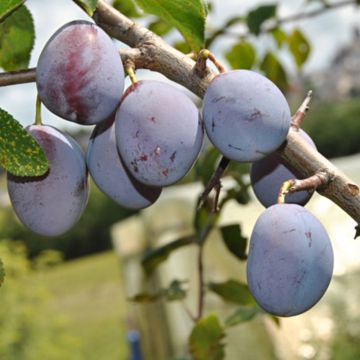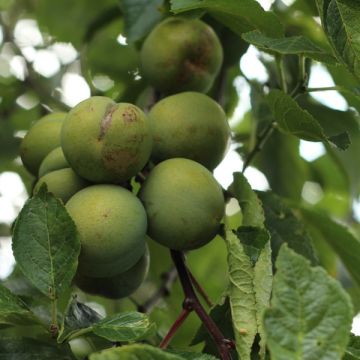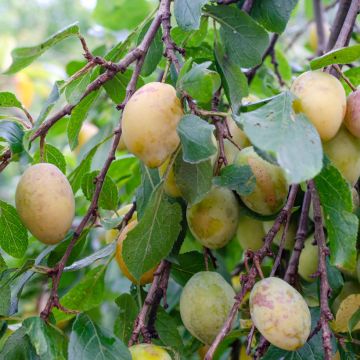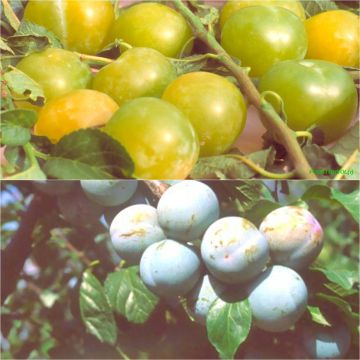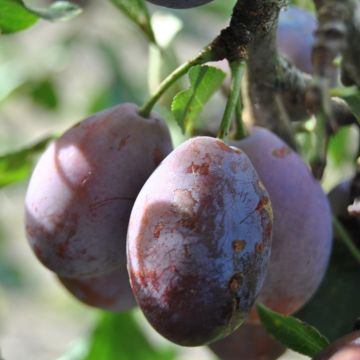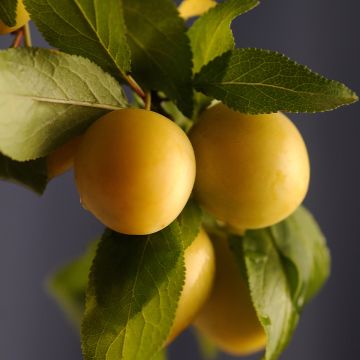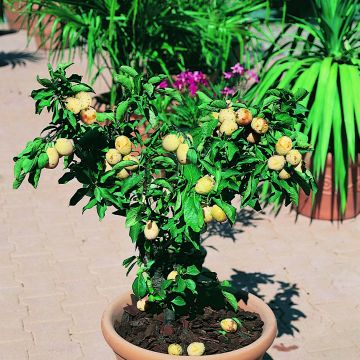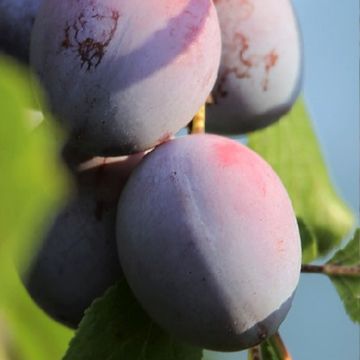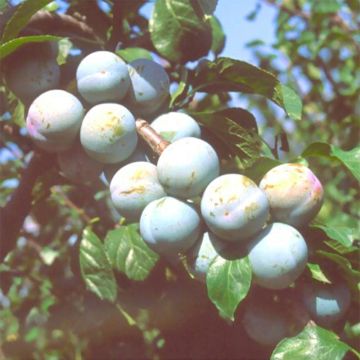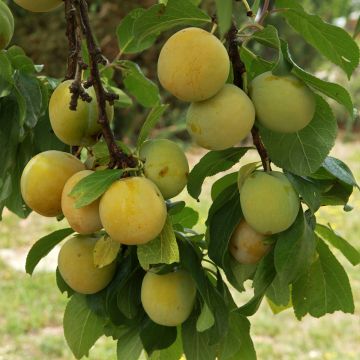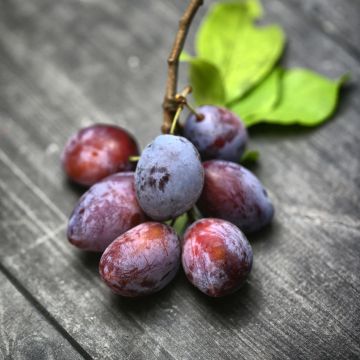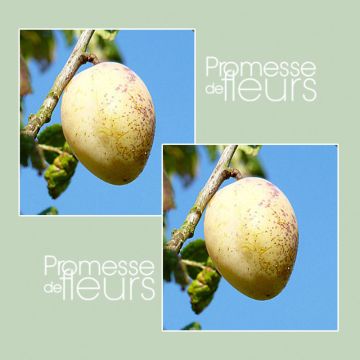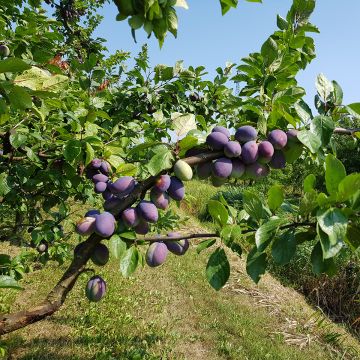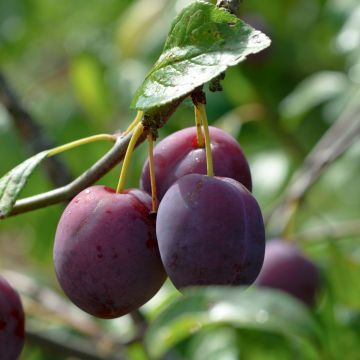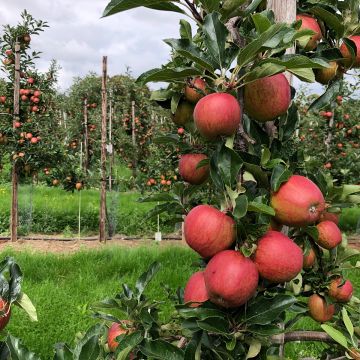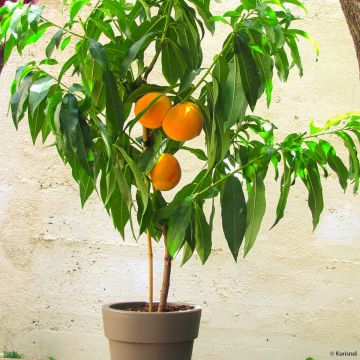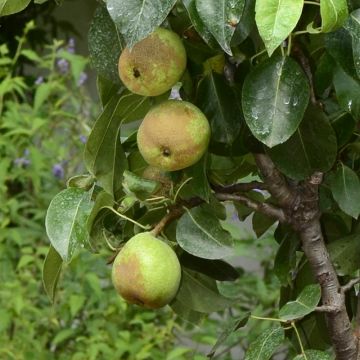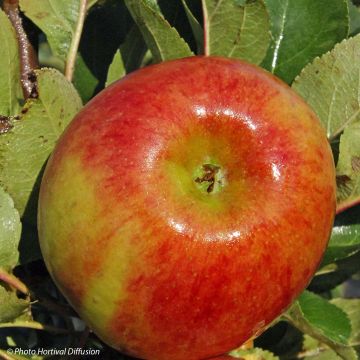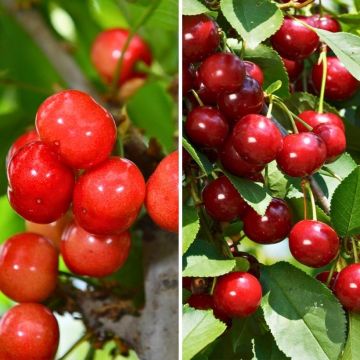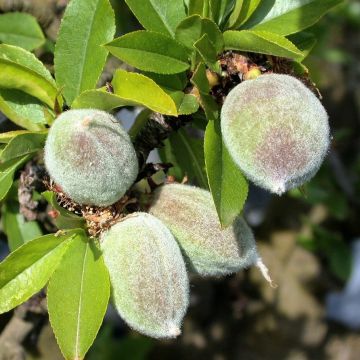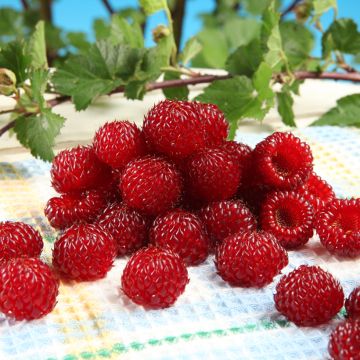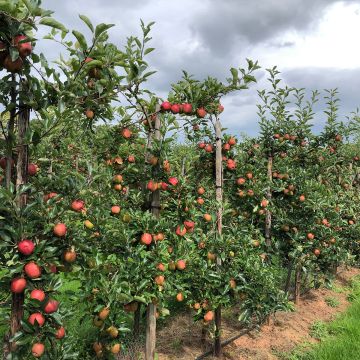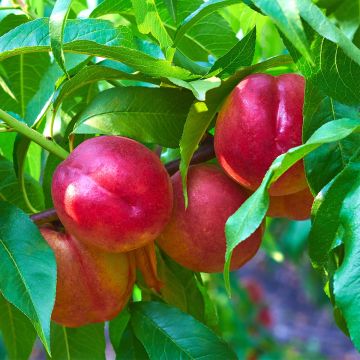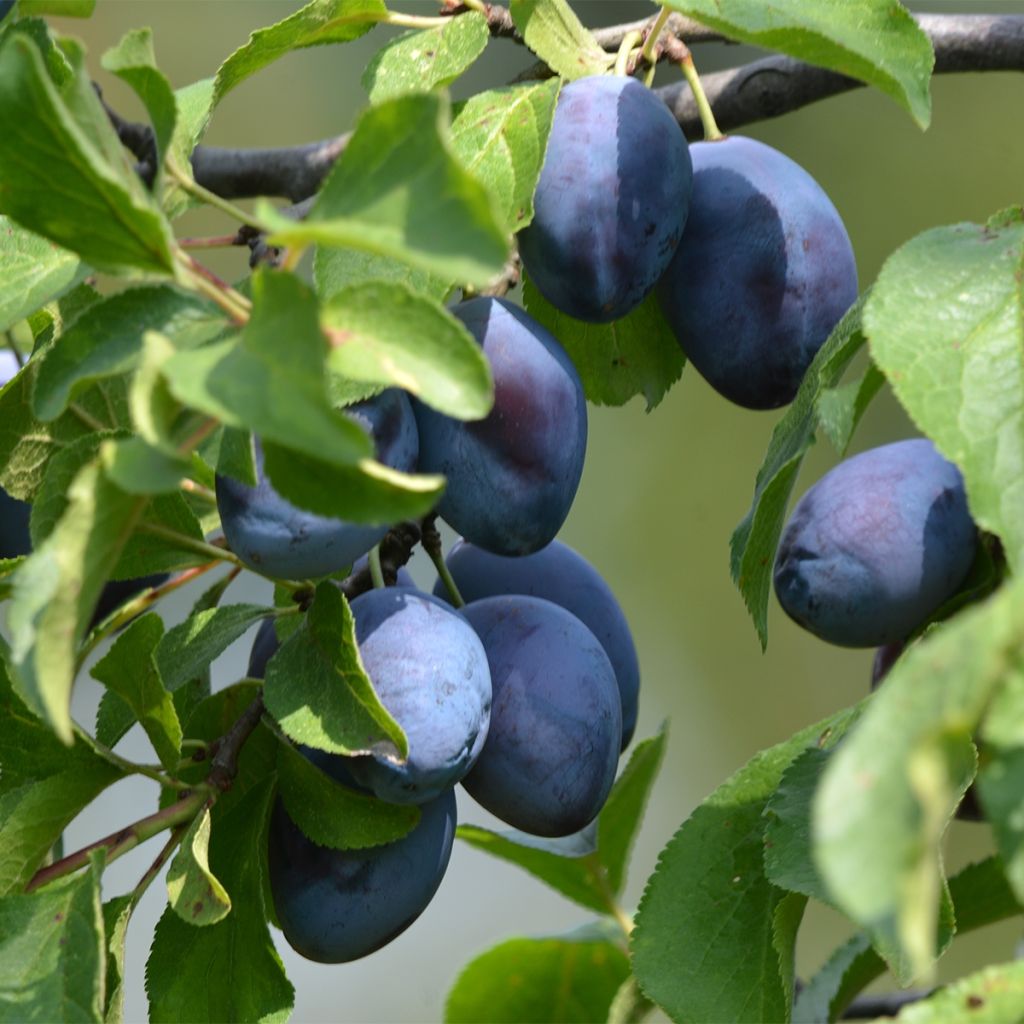

Prunier nain autofertile Fruit me Plum me
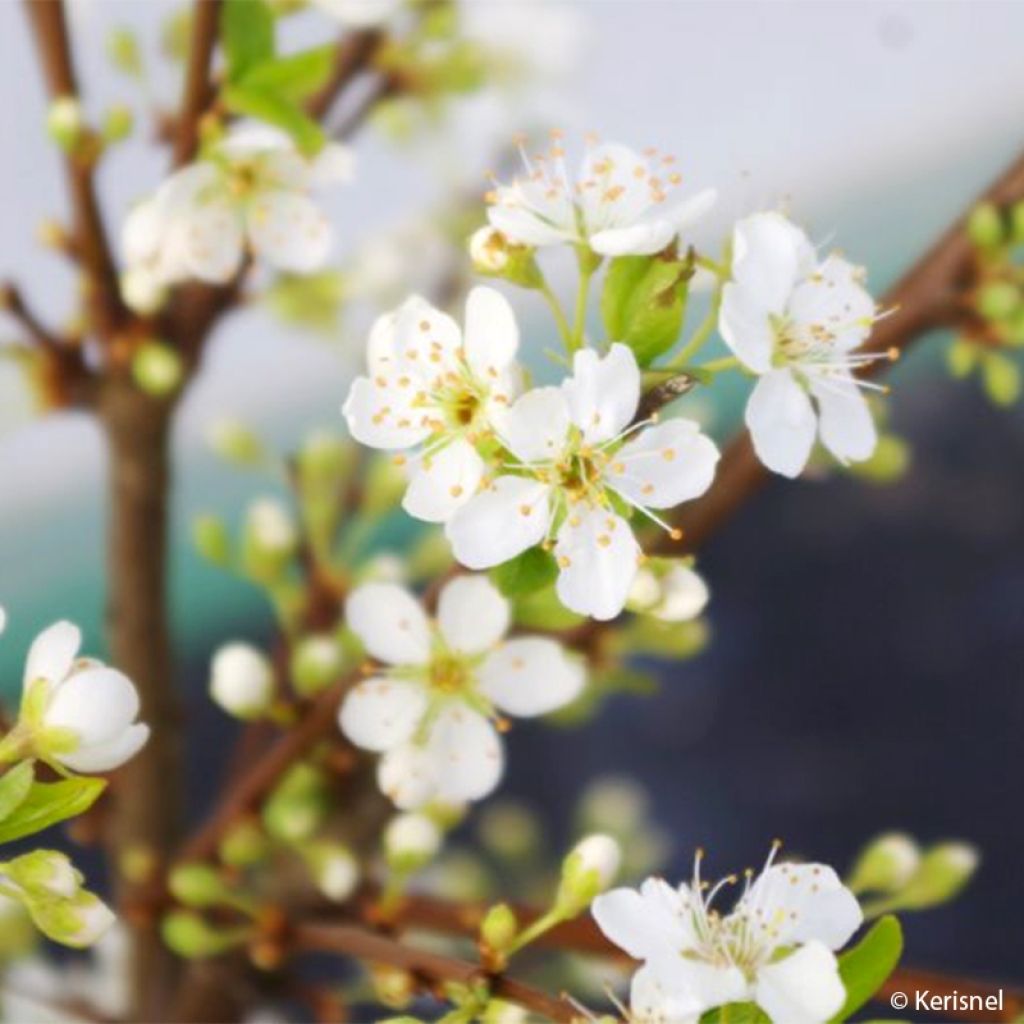

Prunier nain autofertile Fruit me Plum me
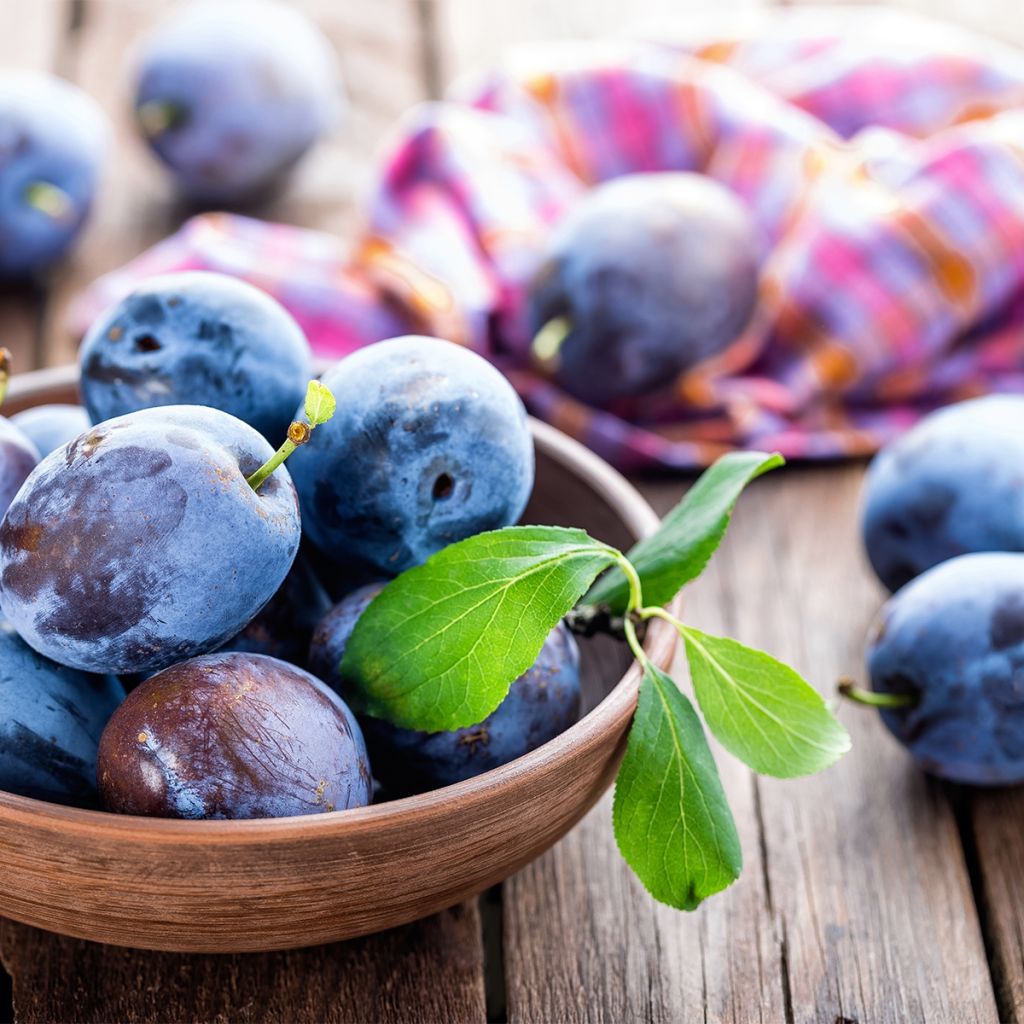

Prunier nain autofertile Fruit me Plum me
Prunus domestica Fruit Me Plum Me - Common plum
Prunus domestica Fruit Me Plum Me
European plum, Common plum, Garden plum
Why not try an alternative variety in stock?
View all →This plant carries a 6 months recovery warranty
More information
We guarantee the quality of our plants for a full growing cycle, and will replace at our expense any plant that fails to recover under normal climatic and planting conditions.
From €5.90 for pickup delivery and €6.90 for home delivery
Express home delivery from €8.90.
Delivery to Corse prohibited: UE law prohibits the import of this plant from mainland France to Corse as part of the fight against Xylella fastidiosa. Please accept our sincere apologies.
More information
Description
The Self-fertile Dwarf Plum Me® Plum Me adapts its growth to the size of its pot and the volume of soil available. It is a small fruit tree that can be easily grown in a container on a balcony or terrace. Its modest growth also makes it suitable for small gardens. This variety is self-fertile and does not require the presence of another plum tree nearby to bear fruit. The plant produces fruits comparable in size to those of a traditional plum tree from the first years of cultivation. These are beautiful oval-shaped plums with blue-violet skin and pleasantly juicy and sweet flesh, with a slight spicy aroma. They can be harvested in August. Easy to grow and requiring very little maintenance, this small plum tree naturally resists a viral disease called sharka, which does not kill the tree but greatly affects its yield.
The plum tree or Prunus domestica Fruit me Plum me is part of a series of semi-dwarf fruit trees that are quite revolutionary and have recently been developed in Spain. All the fruit trees in this range are grafted using a special technique onto a latest-generation rootstock that adapts to the available volume of soil while allowing for high-quality fruiting from the first years of cultivation. The fruit trees in the Fruit me range are also easy to grow, hardy, reliable, and less susceptible to diseases. All these fruit trees allow you to create a miniature orchard on your terrace or balcony!
The original area of plum trees is believed to be Syria, not China. During the time of Roman hegemony in the region, various local fruits including plums were introduced to Rome. Grown in a pot, the "Plum me" plum tree reaches a height of up to 1.5 m (5ft) and a width of 80 cm (32in). Its dimensions will be larger when planted in the ground, but it still won't reach the size of traditional varieties. Its compact dwarf habit is appreciated. It prefers sun or partial shade, shelter from the wind, and grows in any type of rich, moist, deep, and well-drained soil.
Its dark green leaves are oval, almost oblong, toothed, and slightly pubescent. The abundant white flowering occurs in April, earlier or later depending on the region. The tree is completely covered in flowers that appear on the previous year's branches. They are self-fertile.
This variety produces plums of about 4 cm (2in) in diameter, with a violet skin covered in bloom. Their amber flesh is pleasantly juicy and sweet.
In the kitchen: Plums are consumed raw under the tree, in fruit salads, but also in desserts, pastries, as accompaniments to meats and dishes. They are transformed into jams, of course, but also into fruit in syrup, compotes. They are also used to make brandy.
Report an error about the product description
Prunus domestica Fruit Me Plum Me - Common plum in pictures
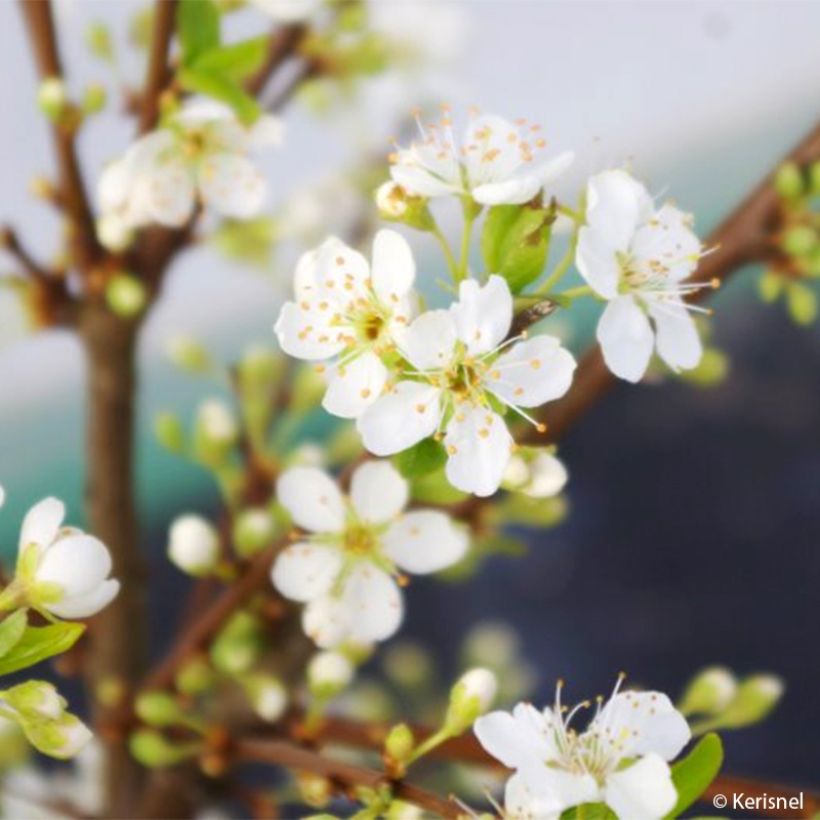

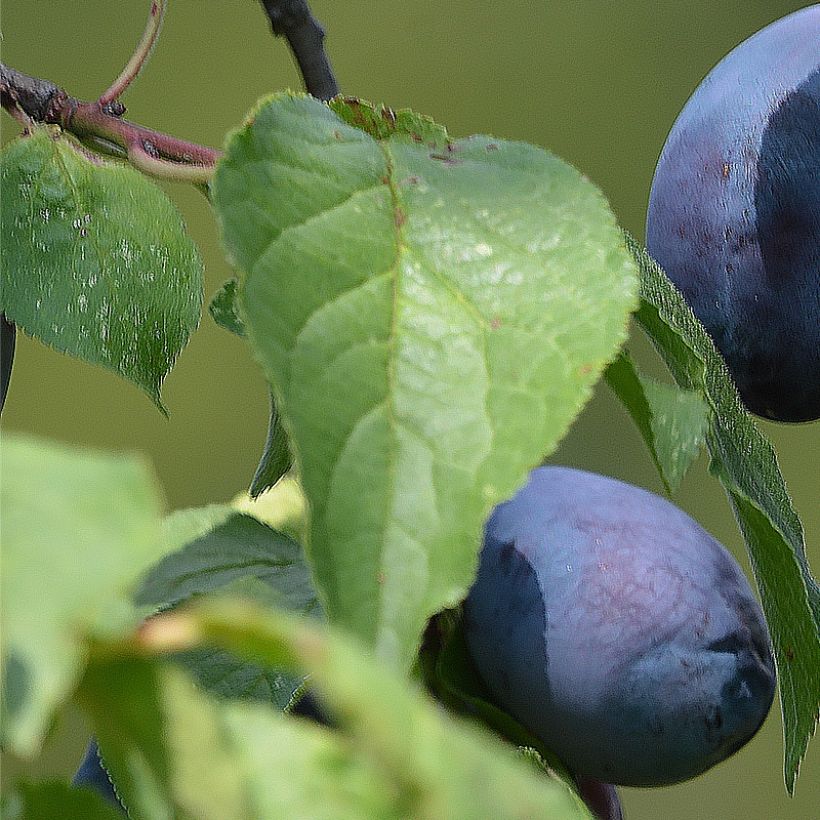

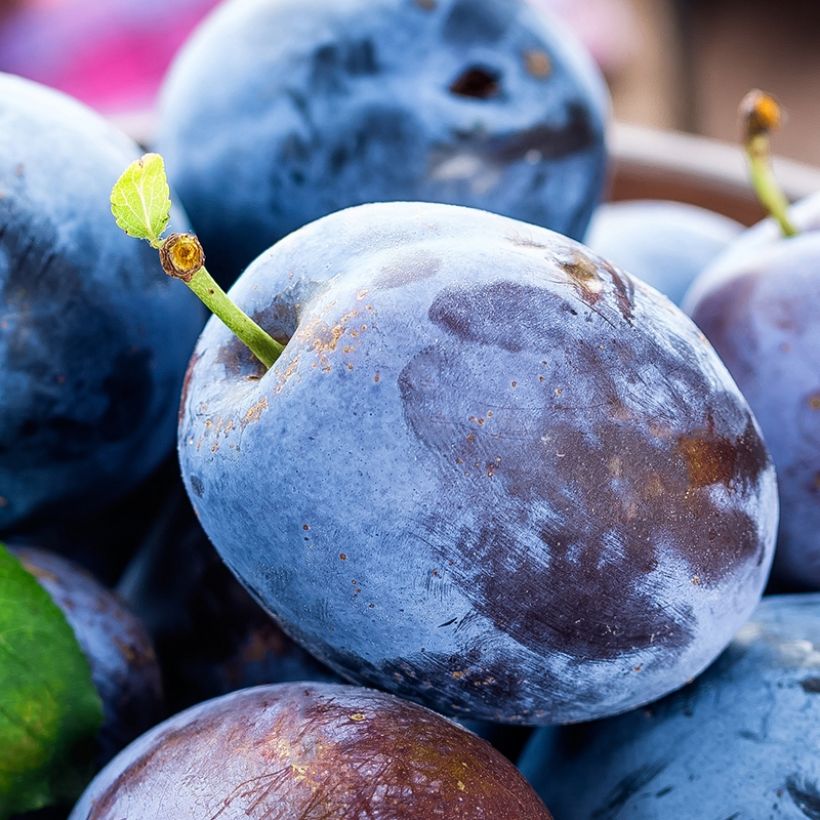

Plant habit
Fruit
Flowering
Foliage
Botanical data
Prunus
domestica
Fruit Me Plum Me
Rosaceae
European plum, Common plum, Garden plum
Cultivar or hybrid
Other Plum Trees
Planting and care
Choose, for your Fruit Me Plum Me dwarf Plum tree, a large pot or a container with drainage holes at the bottom (minimum 40 cm (16in) in diameter and 50 cm (20in) deep) that you will fill with a mix of potting soil and garden soil. Don't forget to place a layer of clay pellets or gravel at the bottom of the pot to allow excess water to drain. Water regularly and apply fruit tree fertilizer in spring. Pruning is generally not necessary. A warm and sunny exposure will promote the production of sweeter and more aromatic fruits, of much better taste quality.
In open ground, choose a well sunny location, the soil can be slightly chalky or acidic but without excess. Dig a wide planting hole at least 3 times the volume of the root ball. Simultaneously add organic matter (leaf compost) and a slow-release fertilizer like crushed horn. Do not bury the graft union. Stake if necessary. Water abundantly, even in winter, even if it rains. Fruit trees are ideally planted between October and March, outside of the freezing period. Container-grown plants can be planted all year round except during periods of high heat or frost.
In winter, you can add a small handful of wood ash, rich in potash, this will improve fruiting. Watch out for possible aphid attacks during the season.
Planting period
Intended location
Care
This item has not been reviewed yet - be the first to leave a review about it.
Fruit trees for small gardens
Haven't found what you were looking for?
Hardiness is the lowest winter temperature a plant can endure without suffering serious damage or even dying. However, hardiness is affected by location (a sheltered area, such as a patio), protection (winter cover) and soil type (hardiness is improved by well-drained soil).

Photo Sharing Terms & Conditions
In order to encourage gardeners to interact and share their experiences, Promesse de fleurs offers various media enabling content to be uploaded onto its Site - in particular via the ‘Photo sharing’ module.
The User agrees to refrain from:
- Posting any content that is illegal, prejudicial, insulting, racist, inciteful to hatred, revisionist, contrary to public decency, that infringes on privacy or on the privacy rights of third parties, in particular the publicity rights of persons and goods, intellectual property rights, or the right to privacy.
- Submitting content on behalf of a third party;
- Impersonate the identity of a third party and/or publish any personal information about a third party;
In general, the User undertakes to refrain from any unethical behaviour.
All Content (in particular text, comments, files, images, photos, videos, creative works, etc.), which may be subject to property or intellectual property rights, image or other private rights, shall remain the property of the User, subject to the limited rights granted by the terms of the licence granted by Promesse de fleurs as stated below. Users are at liberty to publish or not to publish such Content on the Site, notably via the ‘Photo Sharing’ facility, and accept that this Content shall be made public and freely accessible, notably on the Internet.
Users further acknowledge, undertake to have ,and guarantee that they hold all necessary rights and permissions to publish such material on the Site, in particular with regard to the legislation in force pertaining to any privacy, property, intellectual property, image, or contractual rights, or rights of any other nature. By publishing such Content on the Site, Users acknowledge accepting full liability as publishers of the Content within the meaning of the law, and grant Promesse de fleurs, free of charge, an inclusive, worldwide licence for the said Content for the entire duration of its publication, including all reproduction, representation, up/downloading, displaying, performing, transmission, and storage rights.
Users also grant permission for their name to be linked to the Content and accept that this link may not always be made available.
By engaging in posting material, Users consent to their Content becoming automatically accessible on the Internet, in particular on other sites and/or blogs and/or web pages of the Promesse de fleurs site, including in particular social pages and the Promesse de fleurs catalogue.
Users may secure the removal of entrusted content free of charge by issuing a simple request via our contact form.
The flowering period indicated on our website applies to countries and regions located in USDA zone 8 (France, the United Kingdom, Ireland, the Netherlands, etc.)
It will vary according to where you live:
- In zones 9 to 10 (Italy, Spain, Greece, etc.), flowering will occur about 2 to 4 weeks earlier.
- In zones 6 to 7 (Germany, Poland, Slovenia, and lower mountainous regions), flowering will be delayed by 2 to 3 weeks.
- In zone 5 (Central Europe, Scandinavia), blooming will be delayed by 3 to 5 weeks.
In temperate climates, pruning of spring-flowering shrubs (forsythia, spireas, etc.) should be done just after flowering.
Pruning of summer-flowering shrubs (Indian Lilac, Perovskia, etc.) can be done in winter or spring.
In cold regions as well as with frost-sensitive plants, avoid pruning too early when severe frosts may still occur.
The planting period indicated on our website applies to countries and regions located in USDA zone 8 (France, United Kingdom, Ireland, Netherlands).
It will vary according to where you live:
- In Mediterranean zones (Marseille, Madrid, Milan, etc.), autumn and winter are the best planting periods.
- In continental zones (Strasbourg, Munich, Vienna, etc.), delay planting by 2 to 3 weeks in spring and bring it forward by 2 to 4 weeks in autumn.
- In mountainous regions (the Alps, Pyrenees, Carpathians, etc.), it is best to plant in late spring (May-June) or late summer (August-September).
The harvesting period indicated on our website applies to countries and regions in USDA zone 8 (France, England, Ireland, the Netherlands).
In colder areas (Scandinavia, Poland, Austria...) fruit and vegetable harvests are likely to be delayed by 3-4 weeks.
In warmer areas (Italy, Spain, Greece, etc.), harvesting will probably take place earlier, depending on weather conditions.
The sowing periods indicated on our website apply to countries and regions within USDA Zone 8 (France, UK, Ireland, Netherlands).
In colder areas (Scandinavia, Poland, Austria...), delay any outdoor sowing by 3-4 weeks, or sow under glass.
In warmer climes (Italy, Spain, Greece, etc.), bring outdoor sowing forward by a few weeks.

































